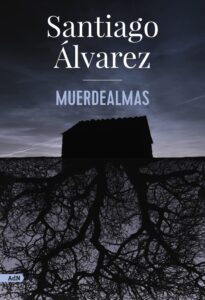About the book
Some days the illness also eats away at the feelings. It is an apathetic body, which emanates the absence that empties it. He has lost the ability to feel. And then he does not suffer, he does not live.”
This is the narrative of the life of Esperia Viola, who first saw the light in 1942, on the slopes of the Abruzzo region, on the border between Colledara and Tossicia, specifically in the “last house before the mountains.” Of that robust woman both in body and spirit, raised by peasants who instilled her in work and effort, little remains: Esperia suffers from a cruel and severe disease known as “cerebral atrophy”, a condition that causes this organ to dehydrate. and shrink.
As the disease steals her identity, her daughter takes it upon herself to narrate (to us) the story of her life, as if it were a diary to delay the progression of the disease. The narration of past events, intertwined with scenes from the daily life of an already aged Esperia, also becomes an excuse to explore and reflect on the complicated relationship between a mother little given to tenderness and contact, always too busy with the work of the home and the land, and his daughter, who tries to exorcise the pain of absence, reproach certain decisions, but, above all, forgive.
The protagonist carries emotional scars from her childhood, a gap of maternal affection that was never filled, a gap between her and her mother that they were never able to close. And now he’s expected to put her life on hold to care for someone who wasn’t there for her?
This is a somber novel that bravely addresses the emotional complexity of individuals and is a tribute to the value of care, but also to the challenging path of those who accompany the sick, who fearlessly immerse themselves in adversity and shake you to the core. . It is one of those texts that has the ability to leave you shocked for days.
This is a heartbreaking novel, in which we immerse ourselves without restrictions in the protagonist’s internal battle, in her internal pain, in her anger… and also in her guilt. Because despite the rejection she feels towards her mother, she justifies her. Despite not forgiving her, he understands her. Her mother is from that generation that she only had time to work, to keep the family afloat, even if that meant her absence. A mother too exhausted to show affection but who showed her love in another way. And that is sometimes not enough.
“My mother is a river” is the story of two lives that intertwine, chase each other between memories and traditions, that rediscover each other driven by the desire to listen to each other but that, even in the face of illness and decline, never manage to fully unite.
The novel “My Mother is a River” is a must-read for those who enjoy stories that explore the complex relationships between mothers and children. The work fearlessly delves into the emotional complexity of the characters and pays tribute to the value of care, as well as the difficult path of those who accompany the sick. The novel is raw and moving, capable of moving the reader for several days.
Source: https://algunoslibrosbuenos.com/mi-madre-es-un-rio

